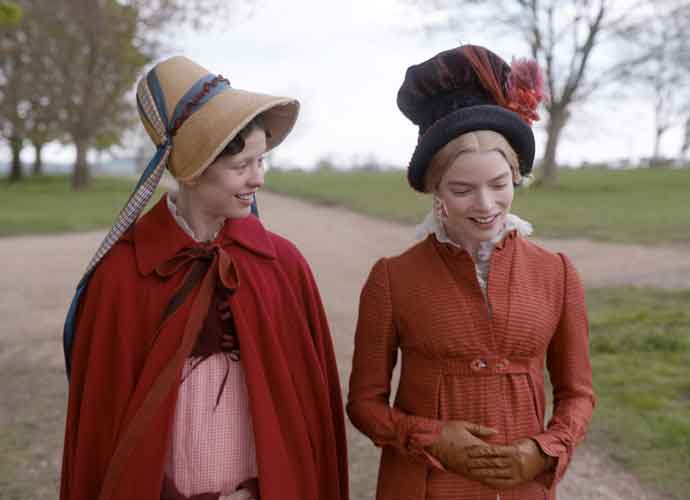‘Emma’ Movie Review: Autumn de Wilde Breathes New Life Into Austen Classic

4.5/5
Surely the last thing we needed was another Jane Austen adaptation. Every few years, some new studio tries to capitalize on the ever-growing group of American Anglophiles by producing some reverent version of the English legend’s romances. While there are some gems among the pile (Whit Stillman‘s Love and Friendship chief among them), they tend to be too uninspired to be worth more than a passing glance.
Thank goodness, then, that legendary photographer Autumn de Wilde has decided to helm Hollywood’s latest foray into Austen’s back catalog. Emma, previously seen onscreen in 1996’s version starring Gwyneth Paltrow and freely adapted as Clueless a year earlier, lacks some of the oomph that makes some of Austen’s other novels so popular and memorable. Perhaps the characters are a bit flatter or the story a bit too staid.
Whatever the case, de Wilde has masterfully transformed the novel into a film that will appeal to both Austen purists and those looking for something a bit more original. Novelist Eleanor Catton‘s script largely stays true to the book, even take several memorable lines of dialogue straight from the page to the screen.
Much of the innovation instead comes from de Wilde’s high degree of comfort with the camera. Every shot in the film is memorable for its own set of reasons, with none feeling superfluous or lazy. Emma‘s ability to find valuable metonymy in its details is certainly unlike anything seen in Austen adaptation before — most great films struggle to find as much poetry in the details as this one does.
A good deal of credit is still due to the film’s outstanding cast, lead by rising star Anya Taylor-Joy as the title character. Taylor-Joy, like most of the main characters, plays her part with an undeniable degree of safety. Some of the joyful revisionism seen in other recent period pieces like The Favourite or Little Women is gone here, but its absence is made up for by characters who have been placed against one another perfectly. The ever-excellent Johnny Flynn‘s George Knightley is a wonderful foil for Emma, with Flynn bringing his own to a character that might otherwise have a bit too much in common with Pride and Prejudice‘s Mr. Darcy.
Living legend Bill Nighy also delights as Emma’s hypochondriac father — his mix of sourness and vivacity always manages to elicit the right laughs at the right moments, and his character’s introduction is one of the best in my recent cinematic memory.
Ultimately, most of the movie’s faults lie more with its source material than with the film itself. The “twists” — if they can be called that — are remarkably easy to see coming, and some of the movie’s later scenes feel more dilatory than necessary. As lively as the film is, it would have been nice if its modern attitude towards cinematography had made its way into the script as well.
Regardless, Emma manages to surprise and delight in ways that many of its peers simply do not. Rarely does a film with stakes so low still manage to enrapture so fully — surely the mark of great careers ahead for de Wilde and company.
RELATED ARTICLES
Get the most-revealing celebrity conversations with the uInterview podcast!







Leave a comment